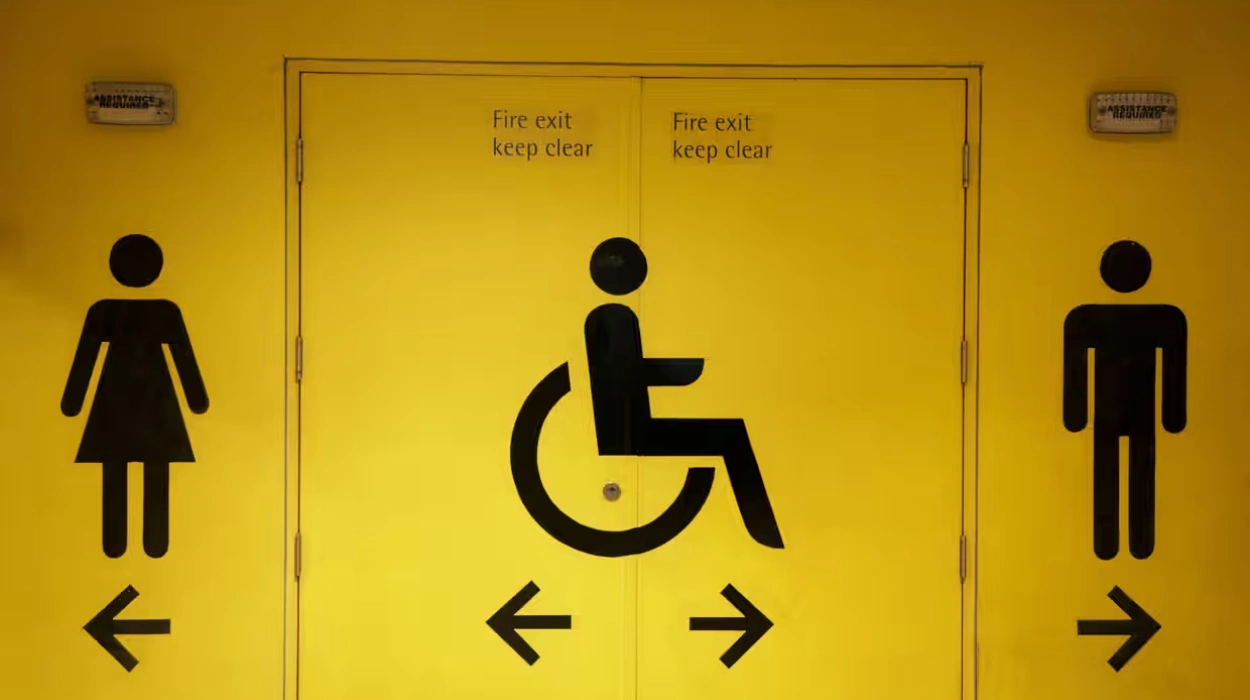UK (Parliament Politics Magazine) – Disabled campaigners denounce efforts to force trans people into accessible toilets, calling it unjust and damaging to both communities.
As reported by The Guardian, disability rights campaigners express concern as trans people now face similar restroom discrimination and exclusion.
Following the Supreme Court’s decision on biological sex, several groups have barred trans individuals from using toilets aligned with their identity, suggesting accessible restrooms instead.
Conservative leader Kemi Badenoch has proposed that trans people use disabled restrooms, with employment lawyers endorsing this workaround where gender-neutral toilets are unavailable.
What did Michaela Hollywood say about toilet access after the Supreme Court ruling?
Michaela Hollywood, an advocate for disabled rights, expressed concerns at the unfolding Supreme Court decision, highlighting the lack of Changing Places toilets for those needing hoists.
She noted that with one in three LGBT+ individuals also living with disabilities,
“there’s a really strong sense of solidarity within the disabled community and longstanding mutual support between us and the LGBT+ community.”
Ms Hollywood said,
“The vast majority of disabled people are so aware of what it feels like to be excluded from basic facilities. I need a hoist to get out of my wheelchair, so if there’s not a Changing Place where I’m visiting then I can’t go.”
What did Claire Glasman say about toilet segregation for trans people?
Claire Glasman, representing the disabled women’s group WinVisible, said,
“When we heard the Supreme Court ruling, we immediately felt this as an attack on all of us who are dealing with discrimination,”
adding,
“Disabled women know what it’s like to be treated as lesser women.”
She added,
“Trans people mustn’t be segregated into disabled loos in the first place. There aren’t enough accessible loos, like at stations. They’re often out of order or kept locked, and usually, the red alarm cord is hung up which is supposed to be pulled if you fall on the floor.”
What concerns did Inclusion London raise about transgender toilet access?
A spokesperson for Inclusion London, an organisation for deaf and disabled people, stated,
“It’s no solution to make this situation worse by forcing trans people to use these accessible facilities. Policing bathroom use harms us all.”
The group warned that the Supreme Court ruling and EHRC’s interim guidance, which limits transgender individuals from using toilets corresponding to their gender identity or birth sex, “encourages members of the public to police each other based on what we look like.” They added, “That’s a significant setback for all our rights.”
What did Ju Gosling say about EHRC’s consultation and toilet access?
Ju Gosling, co-chair of Regard, the UK’s leading LGBTQI and disability rights group, labelled the situation “a license for bullying” as the EHRC begins a six-week review before updating its code of practice, expected after the summer recess.
She said,
“I can only use the wheelchair-accessible toilets now, but I’ve been challenged numerous times over the years in the women’s toilets, sometimes aggressively, because I’m non-gender-conforming.”
Ms Gosling fears that the lack of financial resources in most services could result in fewer available toilet provisions.
She added,
“If you can be sued because you’ve mistakenly let in a transgender man to the gents, or you’ve mistakenly challenged somebody, you can’t get insurance so you just won’t provide toilets. That will hit disabled people even harder.”
What did the UK Supreme Court say about trans women and the Equality Act?
On April 16, in a landmark ruling, the Supreme Court ruled that trans women are not legally qualified as women under the Equality Act.
In their detailed 88-page ruling, Lord Hodge and the other four judges explained that while “biological” is not mentioned in the Equality Act’s definition of man or woman, “the ordinary meaning of those plain and unambiguous words corresponds with the biological characteristics that make an individual a man or a woman.”
What did Baroness Kishwer Falkner say about the Supreme Court Ruling on equality?
Baroness Kishwer Falkner, chair of the Equality and Human Rights Commission (EHRC), stated,
“We are pleased that this judgment addresses several of the difficulties we highlighted in our submission to the court, including the challenges faced by those seeking to maintain single-sex spaces and the rights of same-sex attracted persons to form associations.”

